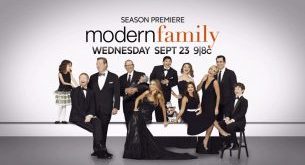6 Years depicts young love with the naivety, tumultuousness, and consistent uncertainty that so often plagues it. It concerns Melanie Clark (Taissa Farmiga) and Dan Mercer (Ben Rosenfield), a college-aged couple that has been together for six years and finds themselves still entranced by great conversations, great understanding for one another, and great sex. However, their relationship doesn’t come with a total pass from its own fair share of hardships; we see early on in the film a simple fight between Mel and Dan turns into a physical fight, with Mel pushing Dan into a dresser, where he gets a head wound serious enough to warrant a hospital visit.
Nonetheless, all is forgiven and the two maintain the same love and affection for one another they’ve had for years. Mel and Dan frequent parties together and are clearly enjoying one another’s company while it lasts. Yet, Dan has bigger plans, potentially getting him and his band signed to a record label and moving to New York City, much to the dismay of Mel, who has reworked her life revolving around Dan and their agreed plans to live together. The two wind up facing more arguments and animosity than they ostensibly faced before, and the pressures of life and preconceived plans find themselves at a crossroads now more than ever before.
6 Years asks the question if the person we fall in love with when we’re young is the same person we’d be keen on spending the rest of our lives with, and in most situations, that could go both ways. If a person can handle you during high school and college, some of the most stressful and nervewracking times of your life, then perhaps that same person is worthy of you for the rest of your life. However, if that person can handle you during those times, but holds you back and/or limits you during the times that could make or break your personality for the rest of your life, are they really getting and supporting the whole you or the current, half-baked version of you?
The film depicts one character, Dan, as someone who is consistently moving forward, looking towards forming a band, a career, and a life, hoping that the girl he’s stuck with for six years now will come with him on this incredible journey. However, Mel’s plans don’t involve big moves to New York City, nor do they foresee huge changes. They see slow assimilation into every day conventionality, possibly involving a small, sufficient home and satisfying careers that may be what calls for the momentary situation, but not what calls for long-term, sustainable happiness. Mel makes the mistake of making Dan her whole life, while forgetting that he, indeed, has a life to attend to and she, in addition, has serious career choices she needs to make, as well, before she’s stuck in a rut of which is impossible to get out.
Now more than ever, young people are realizing their ability to make it far without committing to one person, and that, while presenting serious cons to the concepts of serious dating and commitment, are strong for the ideas of self-reliance and personal dependency. 6 Years focuses on what happens when dependency, while comforting and possibly the only thing somebody has known, can be detrimental to the future of a person.
The film was directed by Hannah Fidell, known for her work on the heavily understated and fairly strong film A Teacher, which depicted a teenager’s illicit relationship with his teacher. Despite hefty criticism for that film, Fidell seemed hesitant to change anything with 6 Years. This is a film heavily built on understated drama and situations that most mainstream films would overplay to death; while it didn’t entirely work for A Teacher, Fidell wisely keeps things very low-key here. Farmiga and Rosenfield do strong work as the leads, particularly in the way they handle the minimalistic, sometimes downright impressionistic (the ending, the abuse scenes) scenes of the film with great conviction. The film’s high level of romanticism also comes into play during key love-making and heartfelt scenes between the two actors that shows a great sense of passion. From these, we can tell, without being explicitly told, that while these characters may not be the best at communicating what’s really on their minds, they’ve made up for it in the way they make love and show each other unmatched affection.
6 Years is a film that shows the animosity and sheer impossibility of young love, possibly questioning whether or not it’s inherently doomed, like a star-crossed idea, bound to fail if even initiated. It reminds me of high schools, when I saw some couples tough it out for two, three, and, one particular couple, four years. “How does it feel to go on for longer than most marriages,” I’d casually, but seriously, ask them.
Trailer:










